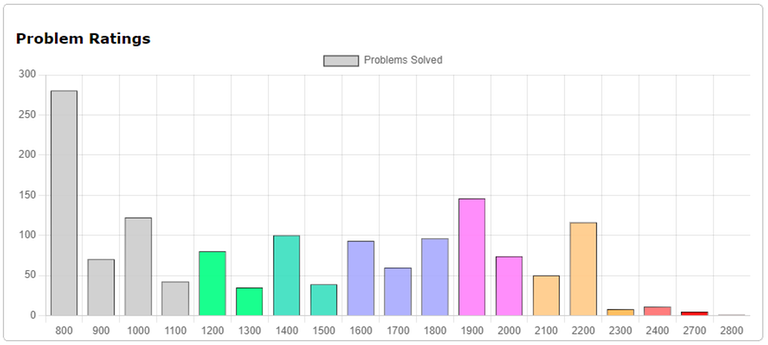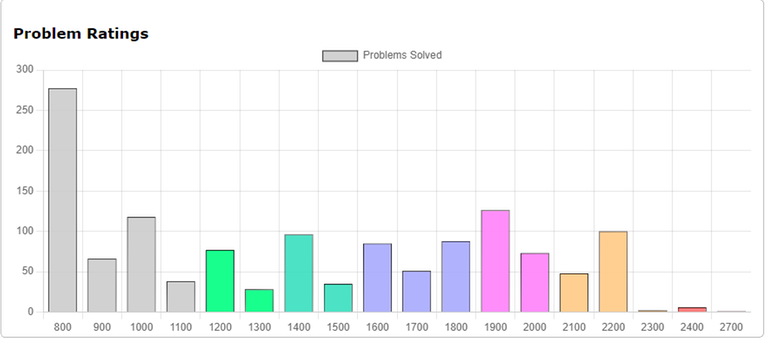
Remember this idiot? This guy has 100+ 2200 solves and two weeks ago his max rating was 1654, now he has reached CM in four contests and his current rating is 1942! Turns out 100+ 2200s was good enough.
What do you think? How did his fake 2200 submissions get him to CM. bigSchrodinger, looking forward to your wise opinion











